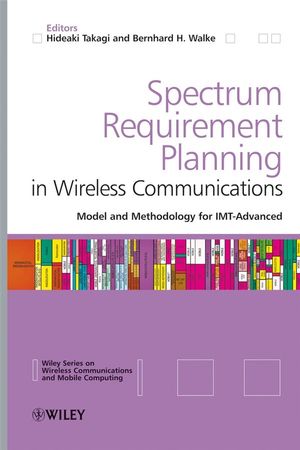Spectrum Requirement Planning in Wireless Communications: Model and Methodology for IMT - AdvancedISBN: 978-0-470-98647-9
Hardcover
266 pages
May 2008
 |
||||||
Spectrum Requirement Planning in Wireless Communications: Model and Methodology for IMT-Advanced is a self-contained “handbook” of the models and methodologies used for the spectrum requirement calculation for IMT-Advanced systems, as well as for the predecessor IMT-2000 systems. The reader will learn how the spectrum requirement is calculated for real systems that prevail worldwide. The book also provides the basis on which to develop advanced methodologies for yet future systems, as the spectrum regulation will continue in the future.
Spectrum Requirement Planning in Wireless Communications: Model and Methodology for IMT-Advanced
- Provides the reader with information on how the spectrum requirement is calculated for real systems that prevail worldwide
- Contains useful tables and examples such as flowchart of the methodology
- Introduces definitions of service category and radio environment, the process of distributing traffic to radio environments, and the method to calculate the required spectrum
- Applies queueing and loss models for the calculation of required system capacity
- Covers utilization of radio frequencies, market data, spectrum requirement calculation methods for IMT-2000 and for IMT-Advanced systems
- Instructs how to use the calculation tool package
- Comes with an accompanying website with the downloadable tool applied by ITU-R WRC’07 for making decisions on spectrum regulation for mobile systems
This book serves as an invaluable guide to engineers in mobile phone companies, system design engineers, operator system engineers and other specialists dealing with mobile system planning and development. It is also of great interest to researchers and graduate students in the fields of applied probability theory, operations research, telecommunications, and mobile networks engineering.



